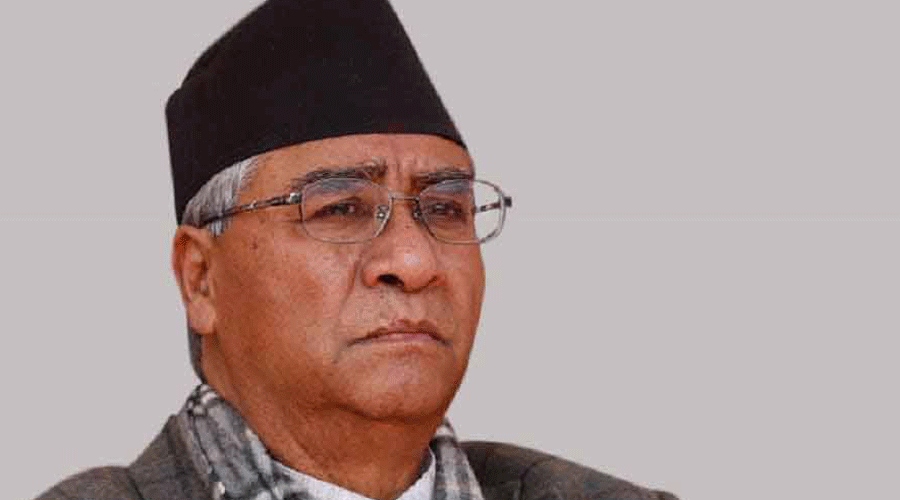
Deeper churn: Editorial on elections in Nepal
While Prime Minister Sher Bahadur Deuba has won his seat, he faces a challenge for the leadership from within his own party
 |
| Sher Bahadur Deuba: File Photo |
TT he Editorial Board | 24.11.22 : More than 10 million Nepalese citizens voted on Sunday to elect their next Parliament and legislative assemblies in seven provinces. While votes are still being counted, a few trends are clear: the ruling coalition led by the Nepali Congress appears poised to emerge as the single-biggest grouping, even though it might fall short of a majority in the House of Representatives. The main Opposition alliance, led by the Communist Party of Nepal (Unified Marxist Leninist), is likely to emerge as the second-biggest formation. Yet it might be simplistic to read the verdict — even as it unfolds — as a victory for continuity. While Prime Minister Sher Bahadur Deuba has won his seat, he faces a challenge for the leadership from within his own party. Seasoned leaders of the CPN-UML are trailing in vote counts, and the Maoist Centre of the former prime minister, Pushpa Kamal Dahal or Prachanda, also looks poised for a decline in seats. Prachanda’s party is a member of Mr Deuba’s current coalition.
These shifts are not the only signs of fresh currents in Nepal’s politics. A new generation of younger candidates also contested Sunday’s elections. The most prominent among them is Rabi Lamichhane, a former television anchor who once ran a restaurant in the United States of America. Mr Lamichhane has galvanised support from younger Nepalese citizens frustrated by the failures and the empty promises of the set of leaders such as Mr Deuba, Prachanda and the CPN-UML’s K.P. Sharma Oli, who have taken turns at ruling the country. Even if Mr Lamichhane does not emerge as a kingmaker after these elections, his rise portends a churn that veteran politicians can only put off for so long. Even as New Delhi continues to work with the known faces of Nepalese politics, it must reach out to those who could represent the future. Recent years have seen the bilateral relationship stumble repeatedly — most significantly after India, in effect, facilitated a blockade of landlocked Nepal’s southern border when the country adopted a Constitution New Delhi disapproved of. Disputes over border territories have also flared up. China is constantly looking to deepen its influence in Nepal. While any new government in Kathmandu will likely try and balance ties with New Delhi and Beijing, India cannot take its eyes off the ball. It must ensure it has friends in both the next government and the next generation of Nepal.

0 Response to "Deeper churn: Editorial on elections in Nepal"
Post a Comment
Disclaimer Note:
The views expressed in the articles published here are solely those of the author and do not necessarily reflect the official policy, position, or perspective of Kalimpong News or KalimNews. Kalimpong News and KalimNews disclaim all liability for the published or posted articles, news, and information and assume no responsibility for the accuracy or validity of the content.
Kalimpong News is a non-profit online news platform managed by KalimNews and operated under the Kalimpong Press Club.
Comment Policy:
We encourage respectful and constructive discussions. Please ensure decency while commenting and register with your email ID to participate.
Note: only a member of this blog may post a comment.